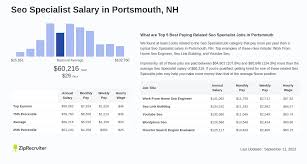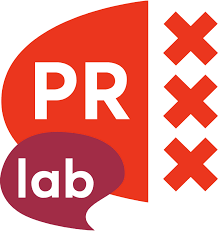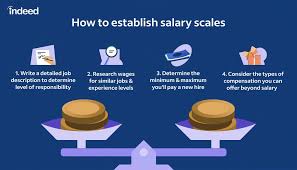Mastering Content Marketing: Your Path to Success with a Comprehensive Course
The Power of Content Marketing Courses
Content marketing has become a crucial aspect of digital marketing strategies for businesses looking to engage with their target audience and drive conversions. As the demand for quality content continues to rise, the need for skilled content marketers has never been greater.
One way to gain the necessary skills and knowledge in content marketing is by enrolling in a content marketing course. These courses offer valuable insights, practical tips, and hands-on experience that can help individuals excel in this competitive field.
Benefits of Taking a Content Marketing Course:
- Learn from Industry Experts: Content marketing courses are often taught by experienced professionals who have a deep understanding of the latest trends and best practices in the industry.
- Hands-On Experience: Many courses include practical assignments and projects that allow students to apply their learning in real-world scenarios, helping them develop valuable skills.
- Networking Opportunities: By enrolling in a content marketing course, individuals can connect with like-minded peers and industry experts, expanding their professional network.
- Stay Updated: The digital landscape is constantly evolving, and content marketing courses provide up-to-date information on new tools, techniques, and strategies.
- Career Advancement: Completing a content marketing course can enhance job prospects and open up new opportunities for career growth in the field.
Choosing the Right Content Marketing Course:
When selecting a content marketing course, it’s essential to consider factors such as course content, duration, delivery format (online or in-person), instructor credentials, and student reviews. Look for courses that align with your learning objectives and offer practical insights that you can apply in your professional endeavours.
Whether you are a seasoned marketer looking to upskill or someone new to the field seeking to establish a career in content marketing, enrolling in a content marketing course can provide you with the knowledge and tools needed to succeed in this dynamic industry.
Investing in your education through a content marketing course is an investment in your future success. Take the first step towards mastering the art of content marketing by enrolling in a course today!
Seven Essential Tips for a Successful Content Marketing Course: Audience Understanding, Storytelling, Multimedia Integration, Quality Consistency, Strategic Promotion, Data Analysis, and Industry Awareness
- Understand your target audience to create relevant content
- Use storytelling to engage and connect with your audience
- Utilise various content formats such as videos, blogs, and infographics
- Consistently provide valuable and high-quality content
- Promote your content through social media and other channels
- Analyse data and metrics to measure the effectiveness of your content marketing efforts
- Stay updated on industry trends and adjust your strategies accordingly
Understand your target audience to create relevant content
Understanding your target audience is a fundamental aspect of creating successful content marketing strategies. By gaining insights into the needs, preferences, and behaviours of your audience, you can tailor your content to resonate with them effectively. This approach not only helps in capturing their attention but also in building trust and loyalty. By creating relevant and valuable content that addresses the specific interests of your target audience, you can establish meaningful connections and drive engagement, ultimately leading to better conversion rates and business growth.
Use storytelling to engage and connect with your audience
Utilising storytelling in your content marketing efforts can be a powerful way to captivate your audience and forge meaningful connections. By weaving narratives into your messaging, you can evoke emotions, create relatable experiences, and ultimately engage with your audience on a deeper level. Storytelling adds a human touch to your brand, making it more memorable and resonant with your target demographic. Embrace the art of storytelling in your content marketing course to effectively communicate your brand’s message and establish a lasting bond with your audience.
Utilise various content formats such as videos, blogs, and infographics
To maximise the impact of your content marketing efforts, it is essential to leverage a diverse range of content formats, including videos, blogs, and infographics. By utilising various formats, you can cater to different audience preferences and capture attention in different ways. Videos are engaging and can convey complex information effectively, blogs provide in-depth analysis and thought leadership, while infographics visually represent data in a compelling manner. Incorporating a mix of these formats into your content strategy can enhance engagement, reach a wider audience, and ultimately drive better results for your brand.
Consistently provide valuable and high-quality content
Consistently providing valuable and high-quality content is a fundamental principle in content marketing courses. This tip emphasises the importance of creating content that resonates with the target audience, offers solutions to their problems, and adds genuine value to their lives. By consistently delivering top-notch content, businesses can build trust with their audience, establish themselves as industry leaders, and ultimately drive engagement and conversions. This approach not only enhances brand credibility but also fosters long-term relationships with customers based on mutual respect and value exchange.
Promote your content through social media and other channels
To maximise the impact of your content marketing efforts, it is essential to promote your content through various channels, including social media. By leveraging platforms such as Facebook, Twitter, LinkedIn, and Instagram, you can reach a wider audience, drive traffic to your website, and increase engagement with your content. Additionally, exploring other channels such as email marketing, influencer partnerships, and guest blogging can further amplify the visibility of your content and enhance its effectiveness in achieving your marketing goals. Effective promotion across multiple channels is key to ensuring that your valuable content reaches and resonates with the right audience.
Analyse data and metrics to measure the effectiveness of your content marketing efforts
Analysing data and metrics to measure the effectiveness of your content marketing efforts is crucial for understanding what resonates with your target audience and how to improve future strategies. By tracking key performance indicators such as website traffic, engagement rates, conversion rates, and social media metrics, you can gain valuable insights into the impact of your content. This data-driven approach enables you to make informed decisions, identify areas for improvement, and optimise your content marketing campaigns for better results.
Stay updated on industry trends and adjust your strategies accordingly
Staying updated on industry trends is crucial for success in content marketing. By keeping abreast of the latest developments and shifts in consumer behaviour, technology, and market dynamics, you can adapt your strategies to remain relevant and effective. Whether it’s embracing new platforms, leveraging emerging technologies, or adjusting your messaging to resonate with current trends, staying informed allows you to stay ahead of the curve and maximise the impact of your content marketing efforts.












